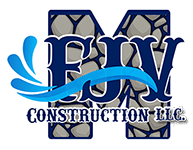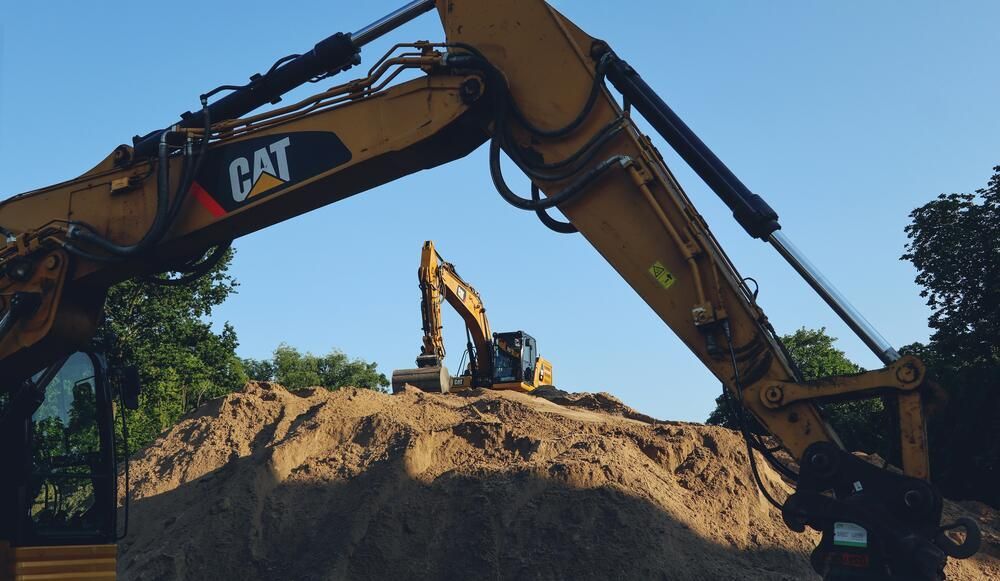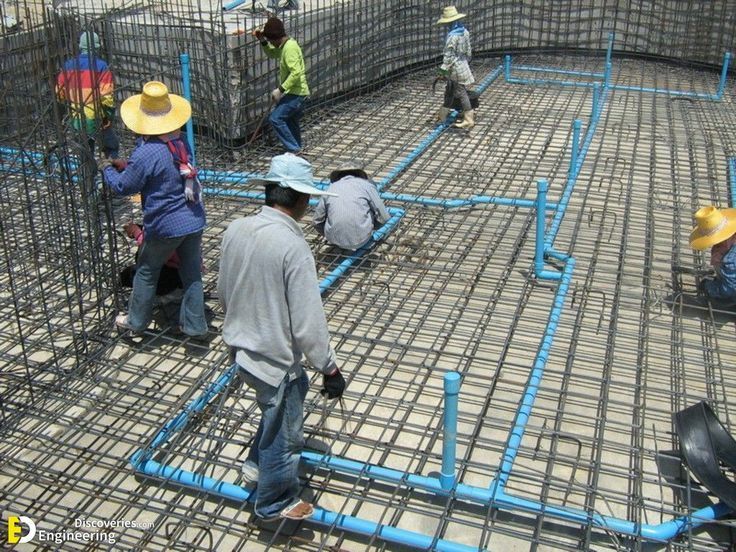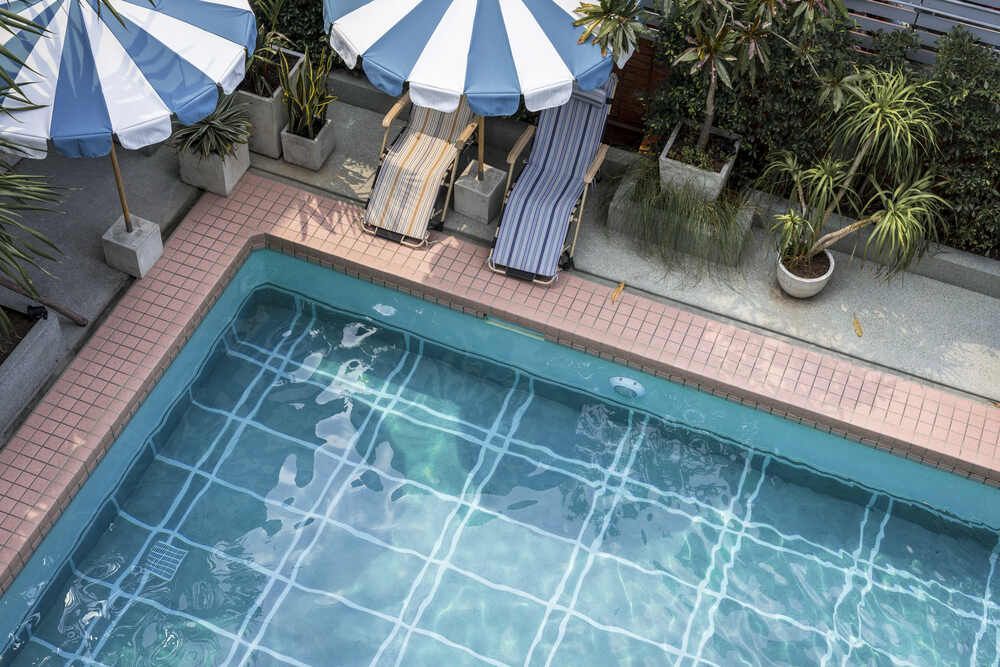7 Pool Contractor Tips on Choosing the Right Pool Size

New ParagraphThe swimming pool market is expected to grow at a 6.33% CAGR from 2021 to 2028, highlighting the increasing popularity of backyard pools. For homeowners looking to enhance their outdoor space, choosing the right pool size is a crucial decision. A well-sized pool not only meets your family's needs but also complements your outdoor space perfectly. This is where the expertise of a professional pool contractor becomes invaluable.
Here are seven essential tips from experienced pool contractors in Danbury, CT, that will guide you in selecting the ideal pool size for your home.
Table of Contents
1. Assess Your Available Space
5. Shape and Design Influence Size
6. Environmental and Climatic Factors
7. Consult with a Professional Pool Contractor
Frequently Asked Questions (FAQs)
Get Expert Pool Construction with FJV Construction in Danbury, CT!
Key Takeaways
✔ Accurately measure your yard and consult local zoning laws to determine the optimal pool size and placement.
✔
Consider your family size, lifestyle, and primary pool activities when choosing the right pool dimensions.
✔
Balance initial construction costs with long-term maintenance expenses to ensure your pool remains affordable.
✔
Plan for future changes in family size and need to select a pool size that remains functional over time.
✔
Choose a pool shape and design that maximizes your available space and complements your outdoor area.
✔
Factor in local climate and environmental impact to select a pool size that enhances usability and sustainability.
✔
Consult with a professional pool contractor to get personalized advice and a custom pool plan tailored to your specific needs.
1. Assess Your Available Space
Choosing the right pool size starts with assessing the available space in your yard. A pool contractor can help you evaluate your yard to determine the most suitable pool size and shape.
How To Assess Your Available Space
- Measure Your Yard Dimensions: Begin by accurately measuring the length and width of the area where you plan to install the pool. Use a measuring tape or a digital measuring tool to get precise measurements. This will help you understand the maximum pool size that can fit comfortably in your yard without encroaching on other outdoor features.
- Consider Setbacks and Easements: Setbacks and easements are legal requirements that dictate how close your pool can be to property lines, structures, and utilities. Research your local zoning laws to understand these regulations. A pool contractor can assist you in interpreting these rules and ensuring your pool design complies with all necessary setbacks and easements, preventing future legal and logistical issues.
- Plan for Surrounding Space: Besides the pool itself, consider the space needed for decking, walkways, and lounging areas around the pool. Adequate surrounding space enhances the functionality and aesthetics of your pool area, providing room for activities and relaxation. A pool contractor can offer design suggestions to optimize your available space.
2. Determine Pool Usage
Understanding how you plan to use your pool is crucial in choosing the right size. Different activities and the number of users significantly influence the ideal dimensions of your pool. Consulting with a pool contractor can provide valuable insights into aligning pool size with your intended usage.
How To Determine Pool Usage
- Consider Family Size and Lifestyle: Assess the number of people who will use the pool regularly. Larger families or those who frequently entertain guests may need a bigger pool to accommodate everyone comfortably. Discussing your family size and lifestyle with a pool contractor can help tailor the pool size to meet your needs, ensuring everyone has enough space to enjoy.
- Identify Primary Pool Activities: Determine the main activities you plan to enjoy in your pool, such as swimming laps, playing games, or relaxing. Different activities require different pool dimensions; for instance, a lap pool needs to be longer and narrower, while a recreational pool might need a larger shallow end. A pool contractor can provide recommendations on the ideal pool size and shape based on your preferred activities.
- Consider Added Features: When planning your pool size, it's essential to think about any additional features you might want, such as a spa, water slide, diving board, or a swim-up bar. Each of these features requires extra space, both in terms of the pool's footprint and the surrounding deck area to ensure safe and convenient access.
3. Budget Considerations
Your budget plays a significant role in determining the appropriate pool size for your home. A pool contractor can guide you through understanding the cost implications of different pool sizes.
How To Consider Your Budget
- Evaluate Initial Costs: The initial cost of building a pool varies significantly with its size. Larger pools require more materials, labor, and time, which can substantially increase the upfront expense. A pool contractor can provide detailed estimates for different pool sizes, helping you choose a size that fits your budget while meeting your needs.
- Understand Long-term Costs: Beyond the initial installation, consider the long-term costs associated with maintaining a larger pool. This includes expenses for heating, cleaning, chemical treatments, and repairs. Consulting with a pool contractor can help you understand these ongoing costs, ensuring you choose a pool size that you can afford to maintain over the years.
- Balance Quality and Affordability: While it's important to stick to your budget, compromising on quality can lead to higher expenses in the long run. A reputable pool contractor can help you find a balance between affordability and quality, recommending cost-effective materials and efficient designs that do not sacrifice durability or functionality.
4. Future Planning
Planning for the future is essential when choosing the right pool size. Considering potential changes in your family's needs and lifestyle can help you select a pool that remains suitable over time. A pool contractor in Danbury, CT, can provide valuable insights to ensure your pool meets both current and future requirements.
How To Plan for the Future
- Anticipate Family Changes: Think about how your family might grow or change over the years. For instance, you may have young children now, but they will grow and may want more space for swimming and playing. A pool contractor can help you design a pool that accommodates these changes, ensuring it remains functional and enjoyable as your family evolves.
- Plan for Potential Expansions: Consider the possibility of expanding or modifying your pool in the future. You might want to add features such as a diving board, slide, or additional seating areas. A pool contractor can design the initial pool layout to allow for easy additions and modifications, providing flexibility for future enhancements without extensive renovations.
- Consider Resale Value: The size and features of your pool can impact your home's resale value. A well-designed, appropriately sized pool can be a significant selling point, while an overly large or small pool might deter potential buyers. A pool contractor can advise on the best pool size that not only meets your current needs but also adds value to your property.
5. Shape and Design Influence Size
The shape and design of your pool significantly influence its perceived and actual size. Consulting with a pool contractor can help you select a design that fits your needs and complements your outdoor area.
How To Consider Shape and Design
- Explore Different Pool Shapes: There are various pool shapes to choose from, including rectangular, freeform, and lap pools. Each shape offers unique benefits; for example, rectangular pools are ideal for swimming laps, while freeform pools blend seamlessly with natural landscapes. A pool contractor can help you explore different shapes and determine which one best suits your space and intended use.
- Maximize Space with Custom Designs: Custom pool designs allow you to make the most of your available space, even in irregularly shaped yards. This might include incorporating curves, steps, and built-in seating areas that enhance functionality without increasing the overall footprint. Working with a pool contractor ensures your custom design is both practical and visually appealing.
- Consider Aesthetic Appeal: The shape and design of your pool contribute significantly to the overall look of your backyard. A well-designed pool can serve as a stunning focal point and complement your home's architecture. A pool contractor can provide design recommendations that enhance the aesthetic appeal of your pool, ensuring it fits harmoniously with the surrounding landscape.
6. Environmental and Climatic Factors
Environmental and climatic factors play a crucial role in determining the right pool size for your home. A pool contractor can provide guidance on tailoring your pool size to suit your local climate and environment.
How To Consider Environmental and Climatic Factors
- Evaluate Local Climate: Assess the climate in your region to determine how often and for how long you can use your pool each year. In warmer climates, a larger pool might be more beneficial due to extended usage, while in cooler climates, a smaller pool might be easier to maintain and heat. A pool contractor can help you evaluate your local climate and recommend a pool size that maximizes usability and comfort.
- Consider Sun Exposure and Shade: The amount of sun and shade your pool area receives can impact water temperature and overall enjoyment. Pools in sunny areas may need features like cooling systems or shaded areas to maintain comfortable temperatures. Conversely, pools in shaded areas might require additional heating. A pool contractor can assess your yard's sun exposure and suggest design features that optimize your pool's size and functionality.
- Plan for Environmental Impact: Think about the environmental impact of your pool, including water usage, energy consumption, and chemical treatments. Opting for a size that is eco-friendly and sustainable can reduce your environmental footprint. A pool contractor can recommend energy-efficient equipment and eco-friendly materials that align with your environmental goals.

7. Consult with a Professional Pool Contractor
Consulting with a professional pool contractor is essential when choosing the right pool size. Their expertise can guide you through the complexities of pool design. They also provide personalized advice that considers your specific needs, budget, and space.
How To Consult with a Professional Pool Contractor
- Seek Expert Advice: Professional pool contractors have extensive knowledge and experience in pool design and construction. They can offer valuable insights into what pool size would work best for your yard, taking into account factors you might overlook. By seeking expert advice, you can make well-informed decisions and avoid common pitfalls.
Request a Custom Plan: A pool contractor can create a customized pool plan tailored to your unique specifications and preferences. This includes assessing your yard, considering your family's needs, and incorporating any special features you desire. A custom plan ensures that your pool is perfectly sized and designed to maximize functionality and aesthetic appeal.
Utilize a Consultation Checklist: Prepare a checklist of questions and considerations to discuss during your consultation with a pool contractor. This might include questions about pool size, shape, design options, budget constraints, and future maintenance. Using a checklist ensures you cover all essential aspects and make the most of your consultation.
Pool Sizes Chart By Type
Choosing the right pool size involves understanding the different types of pools available and their typical dimensions. Below is a chart that categorizes common pool standard sizes to help you make an informed decision.
| Pool Type | Common Depths | Common Sizes |
|---|---|---|
| In-Ground Pool | 3 ft. - 7 ft. | Sizes vary between 10 ft. W x 20 ft. L and 20 ft. W x 40 ft. L |
| Above Ground Pool | 3 ft. - 5 ft. | 15 ft. to 30 ft. circumference |
| Olympic Pool | 7 ft. - 10 ft. | 164 ft. L (widths vary) |
| Lap Pool | At least 4 ft. | 45 ft. L (widths vary) |
| Plunge Pool | 4 ft. - 8 ft. | 8 ft. to 12 ft. W and L |
| Natural Pool | At least 4 ft. | Varies; 269 sq. ft. and bigger |

Frequently Asked Questions (FAQs)
What is the ideal depth for a residential pool?
The ideal depth of a residential pool depends on how you intend to use it. For general family use, a depth of 3 to 5 feet is typically sufficient, allowing for both wading and light swimming. If you plan to use the pool for diving, the deeper end should be at least 8 feet to ensure safety. A pool contractor can help determine the best depth based on your specific needs, ensuring a safe and enjoyable experience. Additionally, considering future uses and users can guide you in selecting the most suitable depth for your pool.
How does the pool's location within the yard affect its size?
The location of the pool within your yard can significantly influence its size and shape. Factors such as proximity to the house, existing landscaping, and sunlight exposure play crucial roles in this decision. Placing the pool too close to structures can limit its size and create safety concerns, while too far may reduce its convenience. A pool contractor can evaluate your yard and suggest the optimal location that maximizes space and enhances the pool's usability and aesthetic appeal.
What are the common mistakes to avoid when choosing a pool size?
Common mistakes include underestimating the space needed for poolside activities like lounging and dining, which can lead to overcrowding. Failing to consider future family needs, such as children growing up or additional family members, can result in a pool that becomes inadequate over time. Ignoring local zoning regulations can lead to legal issues and additional costs. Overlooking long-term maintenance costs and environmental impacts can result in unforeseen expenses and sustainability challenges. A professional pool contractor can help you avoid these pitfalls by providing comprehensive planning and expert advice.
How do pool features like spas and waterfalls influence pool size?
Adding features like spas, waterfalls, and slides requires additional space, influencing the overall size and shape of your pool. These features can enhance the pool's functionality and aesthetic appeal but must be carefully integrated into the design. They also require proper planning to ensure they fit well with the pool's layout and do not overcrowd the available space. A pool contractor can help seamlessly incorporate these features into your pool design, ensuring they complement the overall size and provide added value.
Can I change the size of my pool after it’s built?
Modifying the size of a pool after it’s built is possible but can be a complex and costly process. Changes might include adding or removing sections, adjusting depth, or incorporating new features, all of which require significant construction work. It is often more practical and cost-effective to plan for potential future changes during the initial design phase. Consulting with a pool contractor early on can help you make informed decisions that minimize the need for significant alterations later. Proper planning can ensure your pool remains adaptable to future needs while staying within your budget and design preferences.
Get Expert Pool Construction with FJV Construction in Danbury, CT!
If you're ready to enhance your backyard with a beautiful new pool, contact FJV Construction in Danbury, CT. Our experienced pool contractors can help you choose the ideal pool size, design, and features to fit your space and lifestyle.
Schedule your consultation with us today and start building your dream pool
Our Info
Monday to Friday from 7 am to 6 pm
Saturdays from 8 am to 5 pm
We Accept Cash and Checks
LOCATION
We Cover 80 Miles around Bethel,
Danbury, and Brookfield
Bethel, Connecticut 06801
Danbury, Connecticut 06810
Brookfield, Connecticut 06804
Navigation
Copyright FJV Construction, All Rights Reserved



